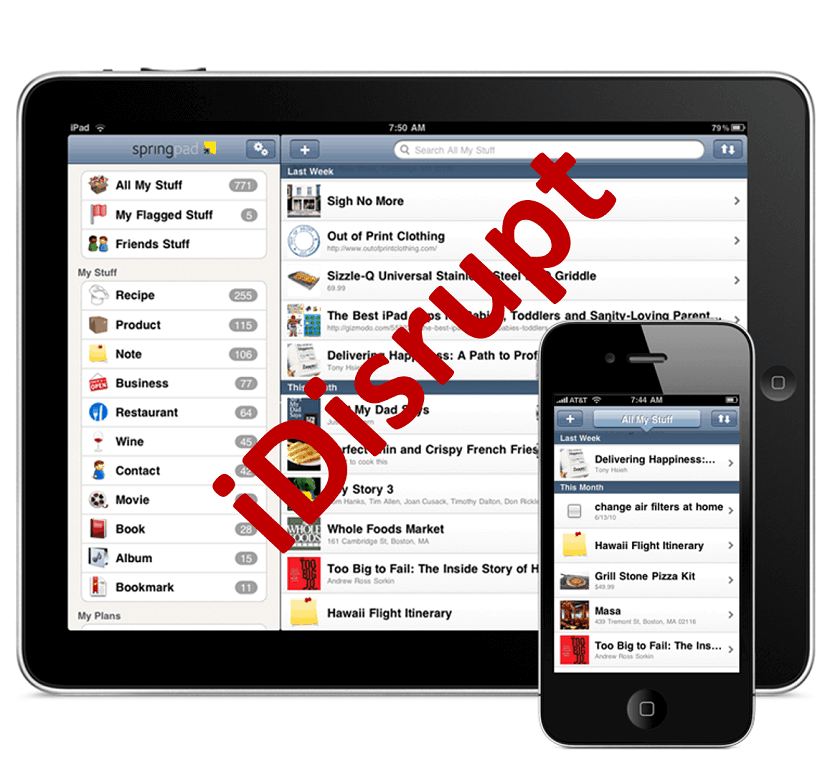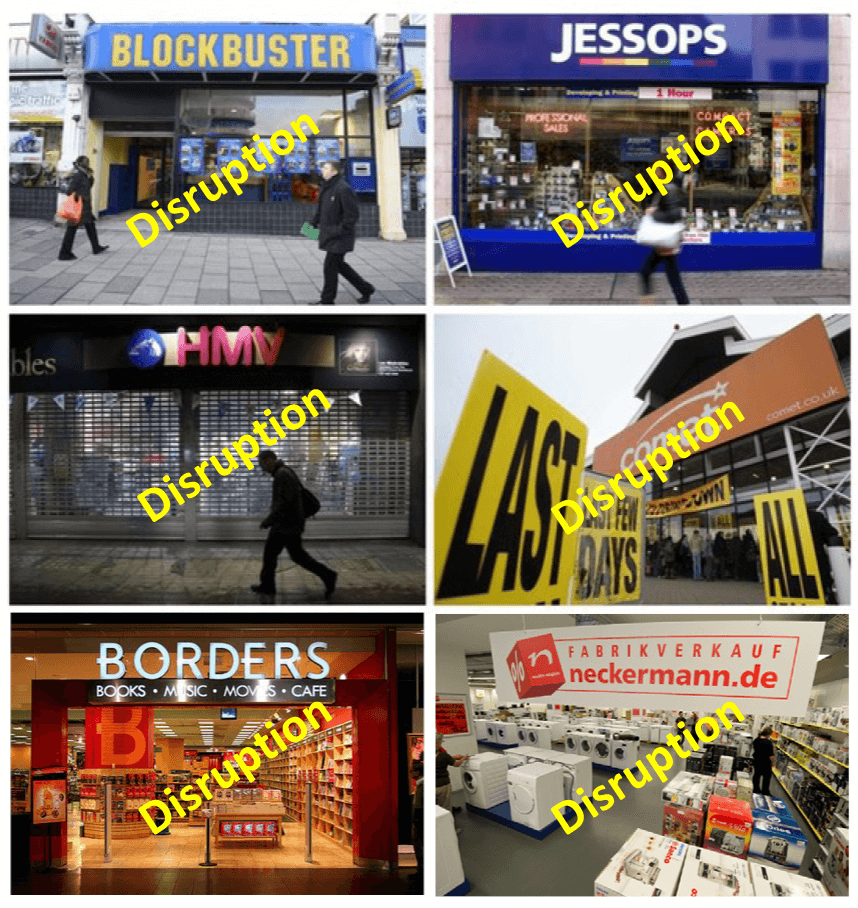Technology shifts can radically change business principles. New technologies are being developed all the time, and the impact this has had on the world of business is immeasurable. As technology continues to move forward, it is important to understand how technology is transforming business:
#1 – The collaboration craze
Collaborative consumption – where physical goods are shared among a group of people, rather than individually owned – might seem more reminiscent of flower power than of Gordon Gekko, but the business threats they embody are very real.
For companies in a growing number of industries, it’s no longer sufficient t0 leverage digital technologies to rationalize and optimize internal production. If the business relies on a model of consumption that is inefficient for consumers, chances are that there’s already a new sharing economy marketplace that is looking to streamline it.
#2 – Technology has flattened the marketplace
In the same way that technology has allowed for collaboration beyond geographical borders, technology has also reduced the barriers to entering markets around the world. This allows buyers and sellers from around the world to connect and do business.
#3 – Technology has made business faster
It is undeniable that technology has made business move much faster than before. Personal computers and the Internet have revolutionized the way we work. E-mail interactions have replaced memos, phone calls, and faxes. Smartphones can connect you with your entire business network while you are out of the office, allowing you to respond quickly. Workflows and automated tasking systems have cut down on organizational bureaucracy, streamlining operations.
Everything can be done via email, or in your web browser.
#4 – The apps revolution
Smartphones and tablet-PC have already disrupted or is disrupting many different business. The potential to disrupt several other businesses is huge, so is the opportunity for incumbents to adopt the smartphones and tablet-PC before more agile start-ups disrupt their business.
#5 – Streaming video
Technology has changed the video rental business very dramatically, and many video stores are out of business, going out of business, or struggling to stay afloat.
Streaming video has become extremely popular and many people are choosing to pay so they can stream new movies right from their homes, computers, tablets, and even smart phones.
#6 – Cord-cutting is growing
Disruption is coming to the TV industry and there will be a new set of distributors leveraging fundamentally different cost structures to the old regime.
Millions of TV users fed up with outrageous fees provided to cable services provider. Streaming services like Netflix, Hulu Plus, HBO Nordic are slowly becoming “good enough” alternative and roughly 1/3rd the cost of basic cable.
#7 – E-readers are starting to replace old fashioned books
Book stores are one of the business models seeing the most problems because of technology.
E-readers are starting to replace old fashioned books, and it is not just the e-readers themselves, but also the app formats of them which allow people to buy and read books right from their smart phones and tablets. Recently we have been seeing bookstore going out of business around the world, the most recent that everyone heard about was the closing of Borders.
#8 – The downfall of traditional bricks and mortar retail
Despite several retailers’ overall net-profit decline and the disappearance of certain stores altogether, the high street remains bustling with shoppers every weekend. However, with the influence of the internet, new technology and the rise of digital marketing, a number of retailers are struggling to keep up.
#9 – The world is getting smaller
Until a few years ago, companies tended to hire people that lived close to their offices. Remote working or doing some of your job from home wasn’t an option and outsourcing to foreign countries was unheard of.
Today, more and more companies are allowing people to work from home. Mobile workers are able to collaborate with people based out of an office, and a lot of work can be done from anywhere as long as you have access to a power port to charge your laptop, and a decent mobile signal.
#10 – Technology has changed how we connect and sell to clients
Perhaps the most important change, technology has allowed businesses to connect and sell to clients in new ways, including e-mails, blogs, and recently and social media. These tools allow businesses to stay relevant in a customer’s mind, and they help prospective customers to find new companies to do business with.
#11 – Consumers are more connected than ever before
Of course, the benefits of the internet aren’t just available to big businesses. Consumers are more connected than ever before too. Social media makes it easy for consumers to share their opinions about their favorite – or least favorite – products, compare prices, shop online, ask for support, and even launch their own niche businesses.
Today, consumers have a lot of power, and an increasing number of companies are learning how to harness that power to turn their customers into online advocates.
#12 – Information is more accessible
A few years ago, companies didn’t care about bad publicity too much, the saying “Today’s headline is tomorrow’s fish and chip wrapper” was often thrown around. That saying is no longer true.
#13 – Connected, everywhere
Today, we’re connected everywhere we go. We don’t have to worry about what phone number we use to call someone – their office ‘phone forwards to their mobile, and if you’re chatting away to someone and they need to check something on their computer, they won’t say “Oh, I’ll have to go back to the office to confirm that”, they can whip out their tablet PC and access their office files on the go.
Today, it doesn’t matter where you are, or what device you’re using. Mobile, land-line, WiFi or VOIP, you can access the same things seamlessly, and don’t have to care about the device or the network.
#14 – Distributing co-creation
The Internet and related technologies give companies radical new ways to harvest the talents of innovators working outside corporate boundaries.
Today, in the high-technology, consumer product, and automotive sectors, among others, companies routinely involve customers, suppliers, small specialist businesses, and independent contractors in the creation of new products. Outsiders offer insights that help shape product development, but companies typically control the innovation process.
Technology now allows companies to delegate substantial control to outsiders – co-creation – in essence by outsourcing innovation to business partners that work together in networks. By distributing innovation through the value chain, companies may reduce their costs and usher new products to market faster by eliminating the bottlenecks that come with total control.
#15 – Cloud Computing and virtualization
We are virtualizing our desktops, our servers, and our storage – which means data is stored on remote servers and accessed in a wired or wireless way.
Short URL & title:
Top 15+ ways technology is transforming business — http://www.torbenrick.eu/t/r/czb
Share it:
If you enjoyed this article, please take 5 seconds to share it on your social network. Thanks!










About The Author
Torben Rick
Experienced senior executive, both at a strategic and operational level, with strong track record in developing, driving and managing business improvement, development and change management. International experience from management positions in Denmark, Germany, Switzerland and United Kingdom